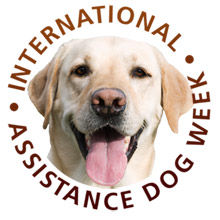Word Woes—Misspelling Mishaps
Author: Ellen Cline; Published: Jan 6, 2012; Category: Editing and Proofing; Tags: editing, homonym errors, proofreading, writing; No Comments

I’ve been stumbling upon mistakes in places where I have rarely noticed them in the past: The New York Times Book Review, The Visual Thesaurus Word of the Day, even the J. Peterman catalog, which used to be known as the best example of catalog writing out there.
These are not all homonym problems, but a variety of typos, misspellings, misuses, and missing words.You’re not the only one making mistakes. Everyone needs an editor, even the editor. But let’s try to learn something from these mishaps.
First, two examples from the Visual Thesaurus Word of the Day, a daily email I really enjoy receiving and which usually is very well written and edited.
- Border Crossing Word of the Day: limbo
Theologians get credit for introducing this Latin word (meaning "border") that originally denoted a place where your not-quite-pure soul might cool its heals, whilst awaiting a possibly better final destination.
(Your soul, if it had feet, would be more likely to be “cooling its heels,” I imagine than “cooling its heals.”)
- Say What You Will Word of the Day: bequeath
The wish to assert a controlling hand after you’ve cashed in your chips is surely as hold as humanity, for bequeath — give by will after your death -is among the first words to appear in English.
(Here a simple typo, “hold” for “old” gives the phrase an interesting alliterative twist, but warps the meaning.)
In a review of the book, “The Greater Journey: Americans in Paris,” by David McCullough, written by Stacy Schiff, in a section talking about the Franco-Prussian War, I found this:
- A reliable topic of conversation in Paris, food was the principal one during the German siege, when cat meat revealed itself be a delicacy and Paris solved its rat problem.
(Just a tiny word, “to,” is missing, but it makes the whole sentence wrong.)
In the J. Peterman catalog, in a description for the Tie-Shoulder-Dress, the generally witty copy was marred by this example of a misused word:
- Let’s not even mention the fact there’s a cocktail with your namesake at the Polo Lounge. Yes, yes, your capriciousness always keeps them guessing.
(The cocktail cannot be “with your namesake.” It can be a cocktail with your name or named after you. For namesake to work in this sentence, it would need to say the cocktail is your namesake.)
And last but not least, I found this in a local magazine, in the letter from the editor:
- Jacob McGee is called a high-rise technician. That might not mean much for most of us. But he’s the guy who straps himself into a harness and repels down high-rise buildings to clean their windows. Well, weather permitting, of course.
(I guess he hopes he repels from instead of attracts to the building as it might hurt when he smashes into it. It would probably be safer if he rappelled.)
Facebook is for the Dogs
Author: Ellen Cline; Published: Oct 26, 2011; Category: Business Writing, Communications Tools; Tags: Facebook, promoting nonprofits, social media; No Comments

You might have read about me blogging for the dog in the past. This spring and summer I was using Facebook for the dogs, specifically for International Assistance Dog Week.
Along with IADW founder, Marcie Davis, we started a Facebook page to help promote IADW 2011, held annually in August. At first I felt like we were just talking to ourselves, since nobody knew about the page or “liked” us. But once we started promoting the Facebook page in our e-newsletter and website, we began to build our audience, and the page became an important part of our overall communications.
As the time for IADW approached, the posts on the page were more and more about global events participating organizations were presenting, and links to media coverage of IADW. Now that IADW 2011 is over, we continue to post every day, but the posts are more about general assistance dog topics. As we move into the new year, we’ll start promoting next summer’s IADW, along with general assistance dog information.
More and more, there are others joining in the conversation. The IADW page is evolving as a place where people can not only find news, but also promote their assistance dog events, ask questions about assistance dogs, share information, and connect with others.
From zero about six months ago, we’ve built up the IADW page to now having almost 800 likes. I think a lot of our growth has to do with:
- Posting consistently, year round
- Sharing posts from related organization/topic pages
- Promoting the page through emails and other communications
- Having friends’ pages invite their followers to like us
- Facilitating comments and discussion when needed
What has been great, too, is having people start to see the page as theirs, posting their own news and events, instead of just waiting for us to post. And when Facebook luminaries like Surf Dog Ricochet, with more than 50,000 “likes,” ask their friends to like IADW on Facebook, well, that doesn’t hurt either.
Some relatively new Facebook features are also helpful, including Insights, the tagging feature, and recommendations on who to follow. Then there are the old faithful features, like comments.
- Insights gives us statistics about people visiting the page, data which might be of interest to potential corporate sponsors, as it shows visitor numbers and demographics.
- Tagging lets us share information with like-minded individuals and organizations, and have our posts show up on their pages, helping to bring awareness of IADW to more people.
- The recommendations from Facebook on who to “like” is similar to a feature that’s been on Twitter for a while. It can be very useful in turning up pages we might not have known about.
- Comments let IADW friends interact with Marcie Davis, IADW founder and assistance dog author and expert, and with each other.
This was the first year IADW was celebrated internationally, and Facebook is one way for this nonprofit event to reach people globally, with the only expense being time.
“I would have written a shorter letter, but I did not have the time.”
Author: Ellen Cline; Published: May 11, 2011; Category: Business Writing, Communications Tools, Editing and Proofing, Message Simplicity; Tags: Business Writing, critiquing marketing materials, editing, Persuading Readers, Simple Message, writing; No Comments

Often time is limited and something needs to go out now. As Blaise Pascal stated, "I would have written a shorter letter, but I did not have the time." In other words, writing fast and writing concisely are often at odds.
I do a profile each week for the Church of Beethoven. I have 140 words and maybe 15 minutes to do it.
For tweets from Working Like Dogs and National Assistance Dog Week (@WLDogs and @NADWeek) which I started doing recently, I have 140 characters and no time.
What do I get out of it? For the 140-word Church of Beethoven profiles, I interview an audience member or volunteer before or after the show. The profile appears in the weekly e-news that goes out on Wednesdays. I learn a lot of amazing things about the people, their interests, their background, and their work, so that’s fun.
For the 140-character tweets, which I actually almost always do through Facebook (trying to save time by posting once), I have to skim news items and figure out what the main point is, then make it short. So like the profiles, I learn a lot, but am always in a hurry, struggling to be efficient, accurate, yet hopefully interesting.
But what about the readers? What do they get out of it? Are these items reaching and teaching or motivating them?
Now that we have less time and space than ever, are we getting better at focusing our messages? Or just creating large quantities of short and not very meaningful messages?
There have always been limitations for marketing professionals: the ¼ page print ad, the billboard, the :15 second spot, the text link on the web page. And of course there’s editing to fit the space: I just had to cut someone’s op-ed down from 1200 words to 600.
But do extremely short messages, like tweets, push us even further? And do they really help us communicate effectively?
It’s not just brevity, but speed. When we have to get something out before it is no longer news, that makes it a rush. When we have to make it short, and do it fast, have we gone beyond what is possible?
Going back to that quote from Pascal—everyone seems to understand that writing short takes more time. But in the current zeitgeist we are expected to do both, fast and short, each and every time. Is this really working?












